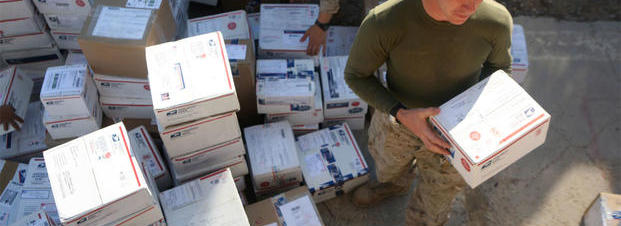
Shipments to the USA suspended by the Polish Post Office
Share
Due to the entry into force of US customs duties on August 29, the Polish Post Office will temporarily suspend accepting shipments containing goods to the US starting Monday, the operator announced on August 22. It will be possible to send correspondence and documents, among other items.
Due to new customs duties in the United States, the Polish Post Office is suspending the acceptance of parcels with goods to this country.
According to a statement from Polish Post, the US president's regulation "suspending the de minimis duty exemption for all countries" affects the entire European Union, and as a consequence, from August 25, PP "is forced to (...) temporarily limit the acceptance of parcels containing goods destined for the United States."
The restriction will apply to shipments of goods, including postal and letter items with declared value, unregistered and registered letter items, Global Ekspress, and EMS shipments. It will be possible to send unregistered and registered letter items that do not contain goods, as only correspondence and documents will be permitted. EMS shipments with documents will also be permitted.
The Postal Service said many other postal administrations in Europe have implemented similar restrictions. It cited a statement from PostEurop, which represents European postal operators, stating that this measure will have a significant impact on all postal companies worldwide and their customers who send mail through postal networks to the United States Postal Service (USPS).
"Key issues and processes, such as customs collection, data collection, and cooperation with U.S. Customs and Border Protection, have not yet been clearly defined. Until now, goods worth up to USD 800 were exempt from customs duties. From August 29, every shipment of goods will be subject to customs duties in the U.S. regardless of its value and country of origin," PostEurop said, as quoted in a statement from the Polish Post.
On August 21, the EU and the US agreed on a tariff statement. It stipulates that most goods imported from the EU will be subject to a 15% tariff. Higher tariffs will apply to alcohol, among other things, and lower tariffs to generic medicines, aircraft, and aircraft parts.
The Polish operator declared that it is monitoring the situation on an ongoing basis and will resume accepting shipments of goods to the USA when possible.
Polish Post, a state-owned company, is the largest postal operator in the Polish market. Its network includes 7,600 postal offices, branches, and agencies throughout Poland.
France will suspend parcel shipments to the United States on Monday due to uncertainties surrounding new U.S. customs and tax regulations, the French postal service announced on Friday. Several other European countries, including Poland, had previously made the same decision. La Poste announced that it was suspending shipments destined for the United States "due to a lack of technical information from U.S. customs."
This concerns new US customs regulations, which, as of August 29, suspend the so-called de minimis rule, which exempted goods worth less than $800 from customs duties and taxes.
The Trump administration justified the change with the need to combat the huge influx of packages from China.
For parcels from the EU, they will be subject to a 15 percent tariff, as stipulated in the EU-US trade agreement at the end of July.
“Despite discussions with the US Customs Administration, postal operators have not been granted a transitional period that would allow them to adapt their IT systems to the new requirements,” the French postal service said in a statement.
She noted that a similar decision to La Poste had already been made by, among others, Poczta Polska, the Belgian BPost, the Spanish Correos, the Swedish-Danish PostNord, the German Deutsche Post and the Austrian Oesterreichische Post.
PostEurop, an organization that brings together 51 European postal operators, has warned that from August 29, 2025, there may be suspensions of parcel shipments to the US across Europe.
